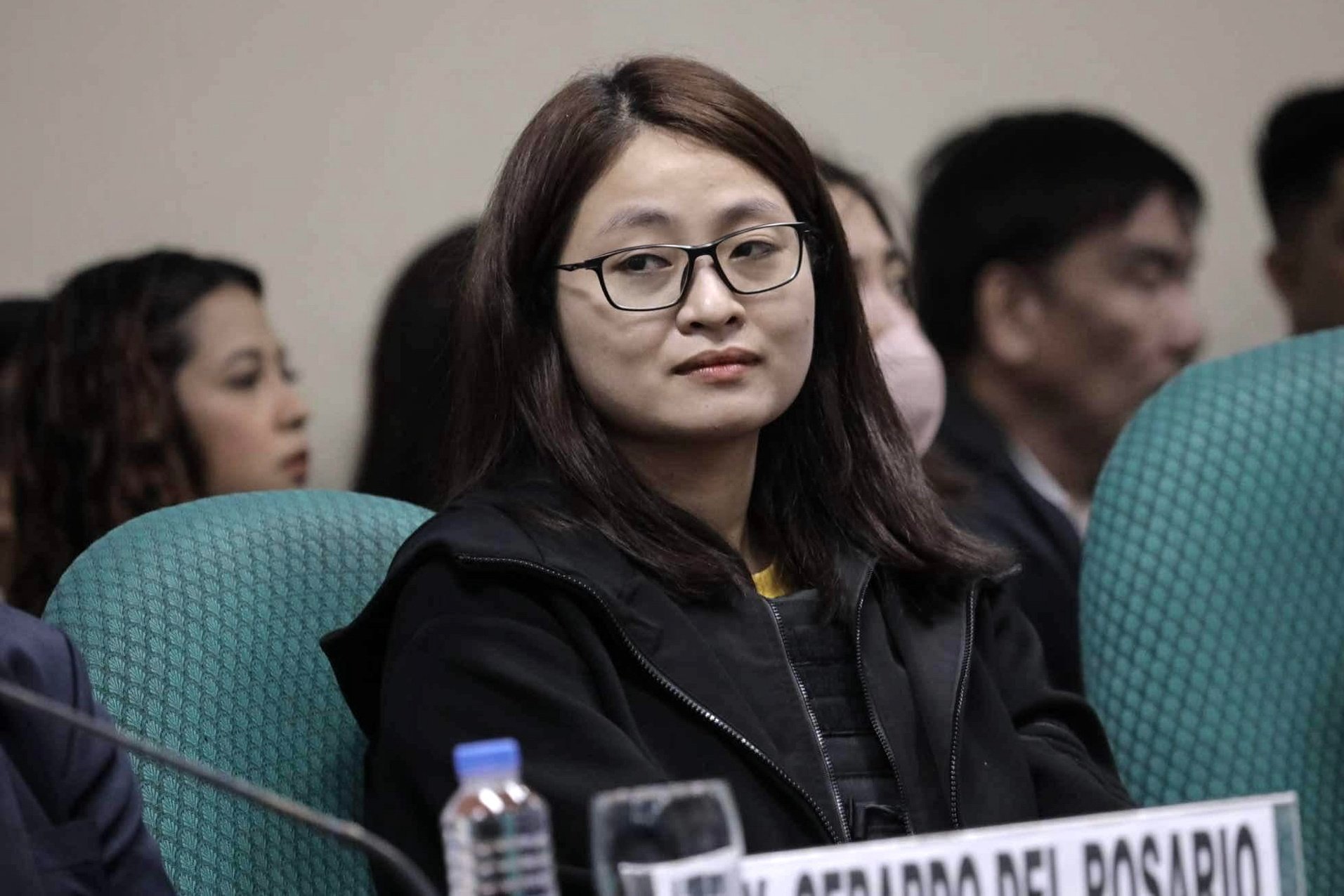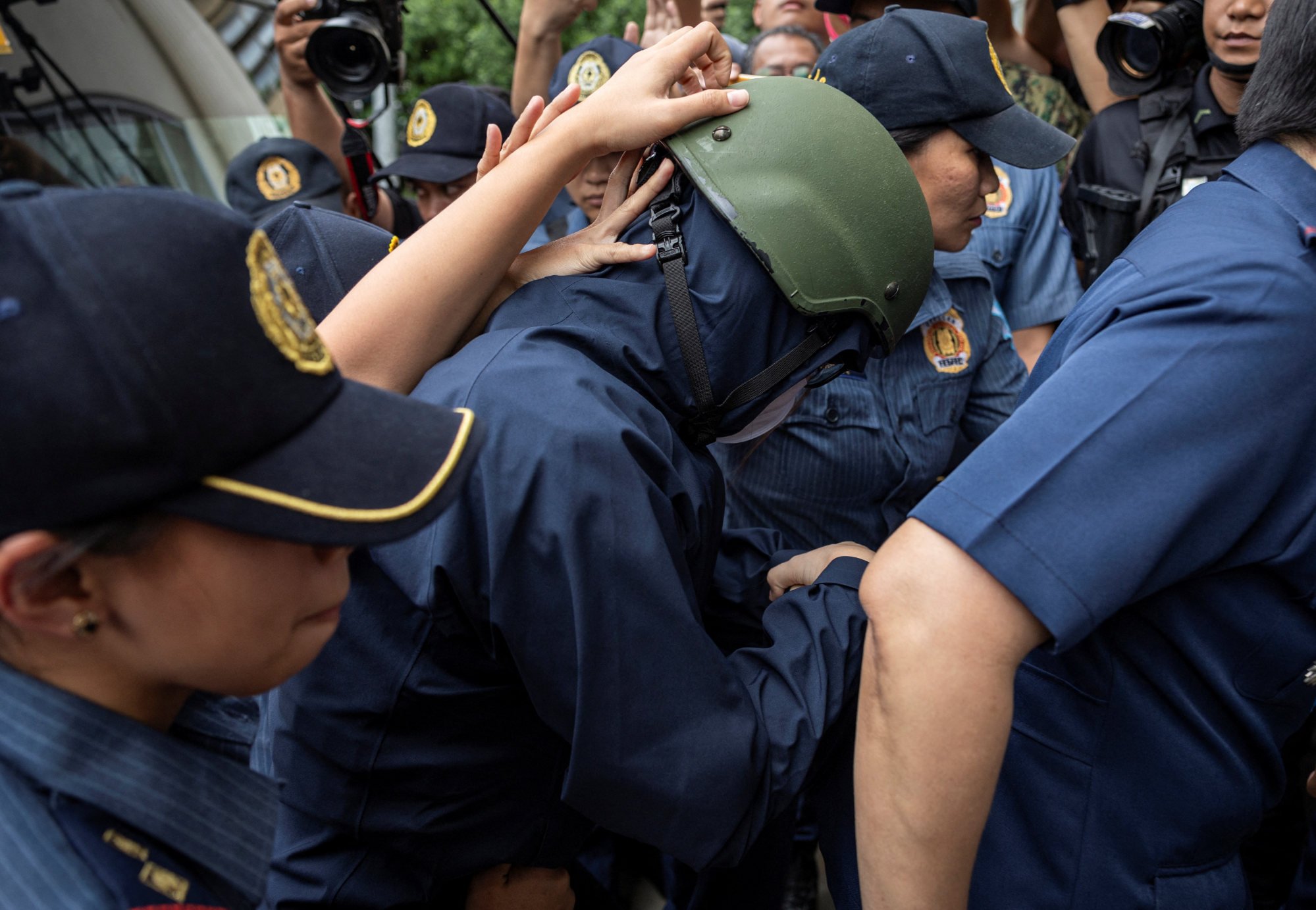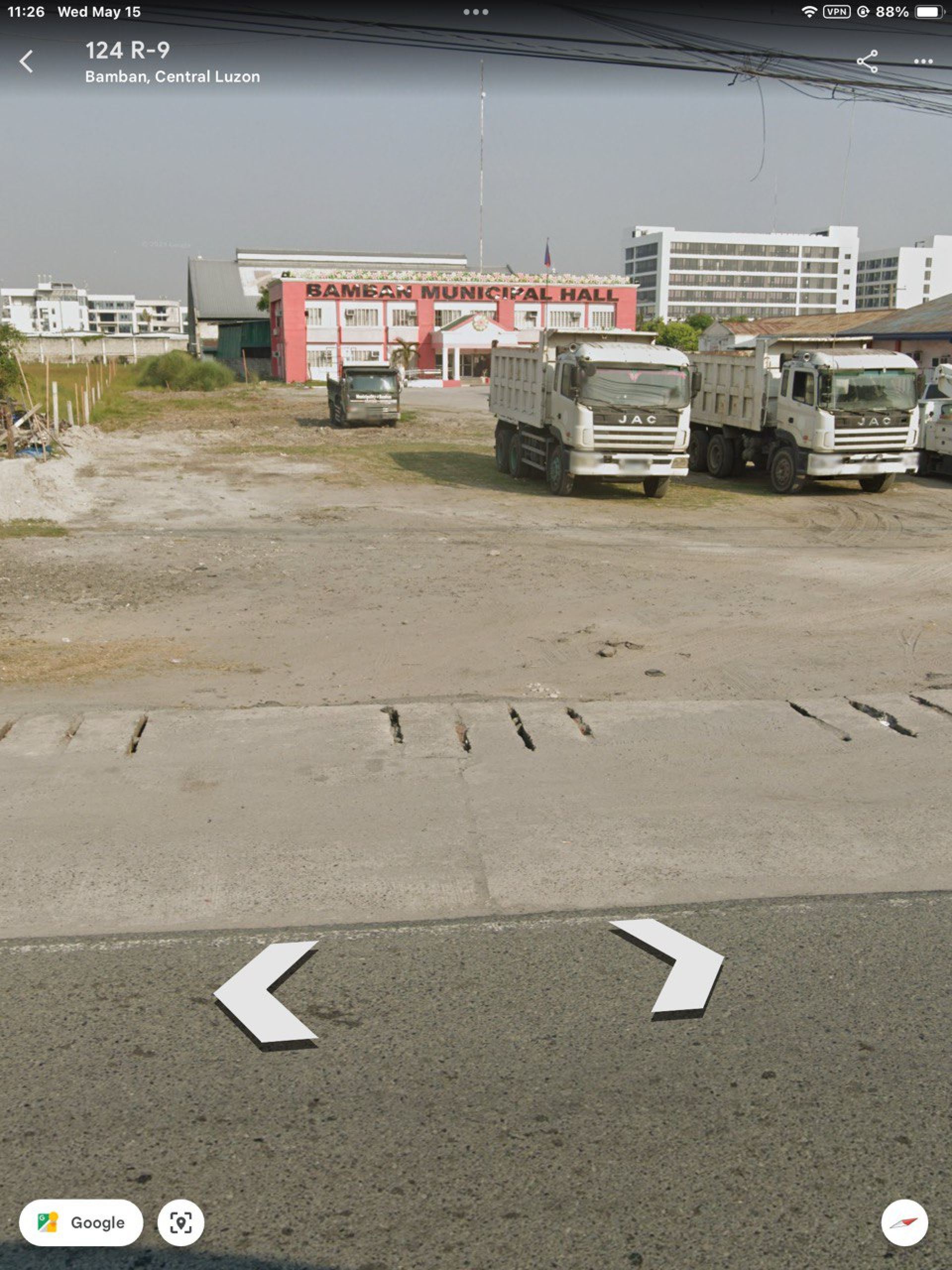From mayor to ‘usurper’: Philippine court rules Alice Guo is a Chinese citizen
The former Bamban mayor is now in detention, facing Pogos-linked charges of human trafficking, money laundering and corruption

A Philippine court has ruled that Alice Guo – a former town mayor who rose to national infamy over her alleged ties to foreign criminal syndicates and questions about her true identity – was never qualified to hold office, declaring her “undoubtedly a Chinese citizen” who had “usurped” her post.
The Manila Regional Trial Court ruled on Friday that Guo’s election and assumption of office in Bamban, Tarlac, from 2022 to 2024 were “null and void”. Agreeing with a petition by the Office of the Solicitor General, it asserted that Guo had never been a natural-born Filipino, as required under the constitution.
“Guo is nothing more than a usurper of the office of the mayor of Bamban, Tarlac. The fact that she won the election and has already assumed office is of no moment as it did not cure her disqualification of lack of Philippine citizenship,” it said.
“Guo Hua Ping is undoubtedly a Chinese citizen, born to Chinese parents, namely Guo Jian Zhong and Lin Wenyi,” the court said, adding that she and her parents held Chinese passports.
Guo was dismissed from public office after an anti-corruption court last August found her guilty of “grave misconduct” for her alleged ties to an offshore gaming operator in Bamban that authorities said was carrying out scam operations and human trafficking.

The former mayor fled the country in July following a warrant for her arrest due to her failure to attend a series of Senate hearings investigating criminal activity linked to Philippine offshore gaming operators (Pogos).
She was extradited to the Philippines after being arrested by Indonesian authorities in Tangerang City in September and has been in detention ever since at the Pasig City Jail on the non-bailable charge of qualified human trafficking.
Guo also faces money laundering and corruption charges linked to her alleged involvement in the Pogo hub in Bamban, where authorities uncovered evidence of criminal activities such as scam operations.
Last March, authorities found a billing statement and a vehicle registered in Guo’s name when they raided an 80,000-square-metre (861,000-sq-ft) facility hosting Pogo operations. They later discovered that the mayor partly owned the land on which the compound was built.
Doubts about Guo’s identity surfaced when she admitted during a Senate hearing in May last year that her birth certificate was registered only when she was 17. Her lack of schooling records was because she was home-schooled, she claimed.
Guo previously denied all accusations of being a Chinese citizen, insisting that she was a love child of a Chinese father and Filipino mother and was raised on her father’s farm. “I am my father’s love child with a maid … It’s a very private matter. I couldn’t admit to anyone that my own mother had abandoned me,” Guo said in an interview with ABS-CBN News in May last year.
Yet the next month, Senator Sherwin Gatchalian presented documents suggesting that Guo was born in Fujian, China, as Guo Hua Ping and entered the Philippines in 2003, when she was 13. Gatchalian showed papers of the Guo family’s application for a special investors’ resident visa with the Bureau of Immigration and Board of Investments.
The National Bureau of Investigation’s fingerprint examination found that Guo’s fingerprints were identical to those of Guo Hua Ping’s. It had also later presented documents of another woman named Alice Leal Guo with the same birth date as the mayor’s.
The Department of Foreign Affairs has cancelled her passport on the basis of fraud, while the Office of the Solicitor General filed a petition to cancel her birth certificate last July.
In October, a Cambodian-Chinese betting kingpin, She Zhijiang, currently imprisoned in Thailand for running illegal online gambling operations, alleged in an Al Jazeera documentary that Guo was a Chinese “asset” like him and claimed that she had solicited funds from him for her 2022 mayoral campaign.
He presented a dossier identifying Guo as Guo Hua Ping, who had connections to the Communist Party in Fujian province.
Friday’s court decision affirmed earlier suspicions of document fraud, writing that Guo’s Philippine passport was not considered “conclusive proof of evidence”, as was her birth certificate which contains “dubious entries … not supported by concrete and credible evidence”. It also upheld government evidence that fingerprints were “infallible and faultless” due to their inability to be forged.
‘A mockery of Philippine institutions’
The court’s decision to erase Guo’s mayorship from records was a clear indicator of the Philippines’ weakening political institutions, analysts said.
“At the very least, Philippine institutions remain weak. Vetting is not usually done because of the limitations of institutions. The vetting comes after cases are already filed in courts,” Nathaniel Candelaria, an assistant professor of political science at the University of the Philippines, told This Week in Asia.
Candelaria called for the strengthening of the country’s institutions “to ensure that this situation will not happen again”.
Guo’s case was exacerbated during former president Rodrigo Duterte’s term, which saw an influx of Pogos entering the country, said Gary Ador Dionisio, dean of the De La Salle – College of Saint Benilde’s School of Diplomacy and Governance. At its height in 2019, there were over 300 Pogo licences, with its revenue peaking at 6 billion pesos (US$106 million) in 2018.

“The case of Alice Guo, exacerbated during the time of former president Duterte, is a clear indication of further weakening our political institutions. But this time around, this foreign national is legitimised with the help of individuals or groups that worked during the past administration,” Dionisio told This Week in Asia.
Calling Guo’s ability to run for mayor despite not being a bona fide Filipino citizen “a blatant disregard of our constitution and mockery of our elections”, he said: “The uncovering and eventually erasing the term of Alice Guo as mayor of Bamban is one step towards clearing our political institutions that were damaged during the past administration.”
Analysts added that the wealth of resources poured into Guo’s operations and Pogos likely meant that residual elements of the controversial gaming hubs still remain in the country.
“My sense is that given the ban on Pogos in the Philippines, it will remain underground. It’s like a mafia film, wherein they operate beyond the law. Given the ban, it might be possible that they will operate outside the control of the law,” Candelaria said.
The amount of money involved “clearly tells us that [Guo’s] connections are indeed deep and vast,” Dionisio said. “The work must continue in order to weed out the inner sanctum of Pogo operation in the Philippines.”